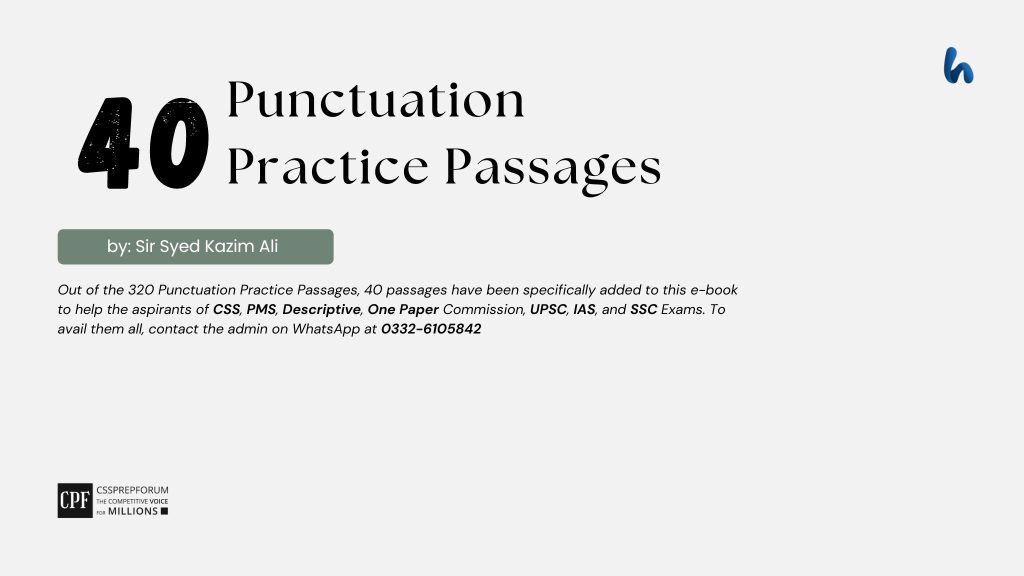This article comprehensively overviews the most important governance terminologies crucial for CSS and PMS aspirants. Learning to write them will enable aspirants to navigate complex political concepts effectively.

Learning to write subject terminologies is always essential for competitive exam students, especially CSS and PMS. This practice gives aspirants a deeper understanding of complex concepts, ultimately helping them articulate their thoughts clearly. Learning to write these terms appropriately not only enhances comprehension but also equips aspirants to engage effectively with exam essays. For example, in fields like political economy, acquaintance with terms such as “globalization” and “trade barriers” helps aspirants confidently analyze and debate relevant issues. After learning these terminologies, aspirants can tackle exam questions more adeptly because they can apply these terms contextually, demonstrating their knowledge and critical thinking skills. Therefore, learning subject-specific terminology is not just about learning words or vocabulary; it’s all about improving exam scores.
I have compiled the following terminologies from various reputable sources: dictionaries, websites, books, and magazines. This compilation is intended to aid my students in enhancing their vocabulary and effectively articulating their thoughts in essays, whether for compulsory or optional subjects.
Important Governance Terminologies
| Governance |
| The process of exercising authority and making decisions that affect a society. |
| Government |
| The institution or system by which a country or state is governed. |
| Legitimacy |
| The right to rule recognized by the people. |
| Sovereignty |
| The supreme authority within a territory. |
| Democracy |
| A system of government where power is vested in the people. |
| Autocracy |
| A system of government where a single person holds supreme power. |
| Theocracy |
| A government ruled by religious leaders. |
| Oligarchy |
| A government ruled by a small group of people. |
| Republic |
| A government where power is vested in the people, usually through elected representatives. |
| Federalism |
| A system of government where power is divided between a central government and smaller, regional governments. |
| Unitarism |
| A system of government where power is concentrated in a central government. |
| Confederalism |
| A system of government where power is held by independent states that cooperate to form a central government. |
| Parliamentary System |
| A system of government where the executive branch is responsible to the legislature. |
| Presidential System |
| A system of government where the executive branch is independent of the legislature. |
| Liberalism |
| A political philosophy advocating individual liberty and limited government. |
| Conservatism |
| A political philosophy advocating traditional values and limited government intervention. |
| Socialism |
| A political philosophy advocating for a society where resources are distributed equally. |
| Communism |
| A political ideology advocating for a classless society where property is owned collectively. |
| Fascism |
| A political ideology advocating for a strong, centralized government and extreme nationalism. |
| Legislature |
| The law-making body of a government. |
| Executive Branch |
| The branch of government responsible for implementing laws. |
| Judiciary |
| The branch of government responsible for interpreting laws. |

| Bureaucracy |
| The administrative or managerial branch of a government. |
| Electoral System |
| The system used to elect representatives. |
| Elections |
| The process of choosing representatives to govern. |
| Voting |
| The process of casting a ballot in an election. |
| Political Parties |
| Organizations that seek to influence government policy. |
| Interest Groups |
| Groups that advocate for specific policies or causes. |
| Lobbying |
| The act of attempting to influence government policy. |
| Rule of Law |
| The principle that all are subject to the law, regardless of their position. |
| Separation of Powers |
| The division of government into three branches to prevent the concentration of power. |
| Checks and Balances |
| A system of checks and balances between the branches of government. |
| Corruption |
| The abuse of power for personal gain. |
| Inequality |
| The unequal distribution of resources and opportunities. |
| Injustice |
| The violation of rights or fairness. |
| Conflict |
| Disagreements or disputes between individuals or groups. |
| Instability |
| A lack of stability or security in a government or society. |
| Good Governance |
| The effective, efficient, and accountable exercise of power. |
| Transparency |
| The practice of making information accessible to the public. |
| Accountability |
| The obligation to be responsible for one’s actions. |
| Participation |
| The involvement of citizens in decision-making. |
| Social Contract Theory |
| The idea that people agree to form a government to protect their rights. |
| Elite Theory |
| The idea that a small group of people holds power in a society. |
| Pluralist Theory |
| The idea that power is distributed among various groups in a society. |
| Bureaucratic Theory |
| The idea that government is dominated by bureaucrats. |
| Systems Theory |
| The idea that government is a complex system with interdependent parts. |
Click on Any to Start Reading



FAQs About Sir Syed Kazim Ali

CSS Solved Past Papers’ Essays
Looking for the last ten years of CSS and PMS Solved Essays and want to know how Sir Kazim’s students write and score the highest marks in the essays’ papers? Then, click on the CSS Solved Essays to start reading them.
CSS Solved Essays
CSS Solved General Science & Ability Past Papers
Want to read the last ten years’ General Science & Ability Solved Past Papers to learn how to attempt them and to score high? Let’s click on the link below to read them all freely. All past papers have been solved by Miss Iqra Ali & Dr Nishat Baloch, Pakistan’s top CSS GSA coach having the highest score of their students. General Science & Ability Solved Past Papers











